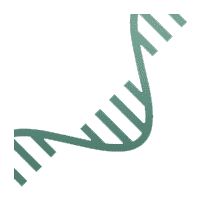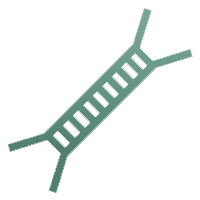Blood RNA Sequencing
CD Genomics offers comprehensive blood RNA sequencing services to characterize total RNA in blood samples, including long non-coding RNA (lncRNA), circle RNA, mRNA and small RNA. Our advanced whole blood transcriptional profiling solution ensures reproducible, specific, sensitive and accurate results to aid disease research, biomarker discovery and other studies.
Overview
Blood is a primary conduit of the individual, involved in systemic immune and metabolic pathways. Peripheral blood cells share over 80% of their transcriptome with many different tissues, including brain, colon, heart, kidney, liver, lung and stomach. Moreover, peripheral blood is the most readily available clinical sample; therefore, blood transcriptome sequencing analysis is uniquely positioned to reveal gene expression signatures, biomarkers and drug responses associated with systemic disease and local pathological activity, such as cancer, hematological tumors, and rare diseases.
In peripheral blood, rRNA content accounts for more than 90% of all RNA, and globin mRNA represents approximately two-thirds of whole blood RNAs. These RNAs can provide little valid information, and direct use of blood RNA samples for sequencing not only generates a large amount of worthless data, but also affects the detection of low-abundance RNAs.
Therefore, we have successfully established a series of practical sequencing and bioinformatics workflows for low load volumes and low-quality blood samples, to significantly improve the detection rate of valid data information and low-abundance RNAs. Combined with specialized next-generation sequencing (NGS), PacBio SMRT and Nanopore sequencing platforms, we accelerate your sequencing and analysis projects to discover and validate novel transcripts, gene fusions, gene expression variants, transcript variants, and gene diversity, and to identify multiple candidate genes and key pathways. Our bioinformatics services are flexible and can be tailored to meet your research needs.
Features
| Rich Experience | Transcriptome Wide | Bioinformatics Analysis | One-Stop Solution |
|---|---|---|---|
| High sensitivity and accuracy of low abundance transcript detection. | Profile all small RNAs and long RNAs, either known or unknown in the blood transcriptome. | Our integrated bioinformatics pipeline can be tailored to suit your project. | From sample QC, library construction, to sequencing and data analysis. |
Project Workflow

1. Sample Preparation
Quality assessment and quantification; ribosomal RNA and globin mRNA depletion

2. Library Preparation
Size fractionation selection; 18~40bp insert cDNA Library; 250~300bp insert cDNA Library.

3. Sequencing
Illumina Nextseq/HiSeq;
SE50, 7-10 Million Reads;
PE150, >80 Million Reads.

4. Data Analysis & Delivery
Visualize and preprocess results, and perform custom bioinformatics analysis.
Bioinformatics Analysis Pipeline

In-depth data analysis:
- Profiling of lncRNA, circRNA, mRNA, siRNA, snoRNA and miRNA
- Detection of novel and rare transcript variants
- Differential expression analysis of genes or targets
- Target gene prediction and functional analysis of lncRNAs and circRNA
- GO analysis
- KEGG analysis
- Customed bioinformatics tertiary analysis
Sample Requirements
Blood sample (≥ 0.5 ml, anticoagulation tubes: sodium citrate or EDTA tubes, heparin tubes are not recommended)
Plasma/serum sample (≥ 2.5 ml with TRIzol LS, anticoagulation tube: sodium citrate or EDTA tube, heparin tube is not recommended)
RNA sample (concentration ≥ 20 ng/uL, amount ≥ 2 ug)
1.8 ≤ OD260/280 ≤ 2.2, OD260/230≥2.0, RIN ≥ 6.5, 28S/18S ≥1.0.
Please make sure that the RNA is not degraded.
Sample Storage: RNA can be dissolved in ethanol or RNA-free ultra-pure water and stored at -80°C. RNA should avoid repeated freezing and thawing.
Shipping Method: When shipping RNA samples, the RNA sample is stored in a 1.5 mL Eppendorf tube, sealed with a sealing film. Shipments are generally recommended to contain 5-10 pounds of dry ice per 24 hours.
Deliverable: FastQ, BAM, coverage summary, QC report, custom bioinformatics analysis.
References:
- Harrington CA, Fei SS, Minnier J, et al. RNA-Seq of human whole blood: Evaluation of globin RNA depletion on Ribo-Zero library method. Scientific reports, 2020, 10(1): 1-12.
- Paskey AC, Frey KG, Schroth G, et al. Enrichment post-library preparation enhances the sensitivity of high-throughput sequencing-based detection and characterization of viruses from complex samples. BMC genomics, 2019, 20(1): 1-14.
